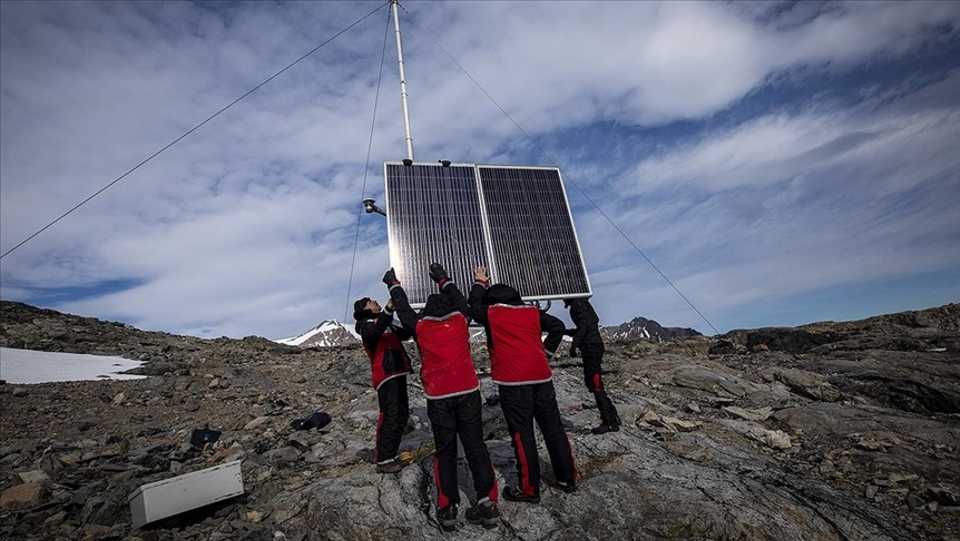
Turkey has set up a landmark meteorological observation station in Antarctica, the coldest continent on earth.
The General Directorate of Meteorology (MGM) of the Turkish Ministry of Agriculture and Forestry established the first automatic meteorological observation station.
Earlier in February, a Turkish team travelled to Antarctica for 30 days as part of the Third National Antarctic Science Expedition.
During this time, the station on Horseshoe Island was set up after four days of tough work due to inclement weather.
“We endured the wind and the cold [while setting up the station]. Parameters like temperature, humidity, pressure, and snow will be measured at this station,” Mehmet Yikilmaz, an engineer at the MGM, told Anadolu Agency.
Noting that it was difficult to carry material against the powerful wind, Yikilmaz said around 450 kilograms of material was first brought to the coast of the island by helicopter, then carried to the hill where the base is located.
He added that a device to measure ozone above the continent will be set up in the long term, but for now, the priority was gathering meteorological data.
The newly built station will provide meteorological data such as wind speed, wind direction, heat, humidity, precipitation, pressure, snow depth, global solar radiation and sunshine duration for two years.
The data will be recorded on a database after being transferred to a central server via satellite.
All of the observation data will be shared by the Met Office with the related departments for research studies.
The lowest temperature ever recorded in Antarctica, in 1983, was -89 degrees Celsius.
In summer, however, mercury in the continent can climb as high as a balmy -15 degrees Celsius.
Turkey seeks more engagement
The first Turkish team to travel to Antarctica did so in April 2016. It consisted of doctors, botanists, geologists, oceanographers and researchers from seven universities who went there to study the impact of climate change.
Antarctica – which has no indigenous inhabitants and is not ruled by any country – is called the “peace and science continent.” It has served as a scientific research zone since the signing of the 1959 Antarctic Treaty.
Turkey currently holds observer status to the treaty but hopes to see this raised to consultative status.










Discussion about this post